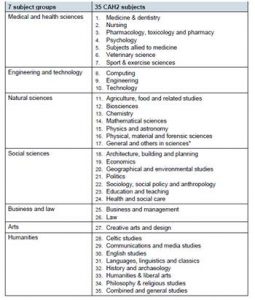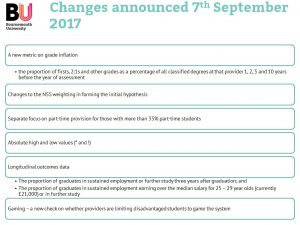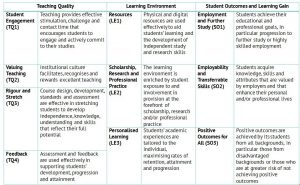Professor Debbie Holley, Head of the Centre for Excellence in Learning at BU and Jacky Mack, the Head of Academic Services, co-hosted a workshop at BU entitled “TEF: going for Gold” with Jane Forster, the VC’s Policy Advisor and 23 staff members from across BU.
The workshop started with an update from Jane on the Teaching Excellence Framework, including all the July announcements on subject level TEF pilot:

and the more recent ones on new metrics:

There was a discussion about how the subject level TEF will work, including the new teaching intensity metric:
- “A student survey on number of contact hours, self-directed study and whether they consider the contact hours are sufficient to fulfil their learning needs”
- “a provider declaration of the contact hours they are providing, weighted by staff-student ratios, to get a measure of teaching intensity (using a ‘weighted contact hours’ measure as well as taking into account provision such as placements, field work and e-learning).”
We looked at the groups briefly, so that participants could consider who across the university they would need to collaborate with to take action to address any concerns flagged by the subject level data.
We then moved onto the first part of the workshop, looking at metrics. With a set of hypothetical metrics and benchmarks (all negative), the groups thought about what action they could take now to change the metrics at a subject level, taking into account that the metrics are benchmarked and the sector will not stand still.
We then looked at provider submissions, having noted that there would need to be collaboration across BU on this as well, given that the groups cross BU departments, even for model A. To support this discussion, we provided a matrix based on the TEF criteria and we also used information from BU’s own written submission.

There were some interesting ideas generated about things to consider and also things to talk about in a submission:
- assignment guidance – over-anxious students interpreting different language from different academics – being clear and empowering students to own their own approach
- students co-creating their assessment criteria from a set of ILOs
- make it easier for students to find information on their own – where do they look?
- building a sense of belonging
- having discussion forums with students – what’s working?
- using attendance reporting for engagement and early warning
- setting expectations right from the open day
- monitoring performance and taking action
- course cohesion
- using internal feedback data
- looking at student handbooks
- mentoring for new staff
- using team teaching more
- using rubrics for marking
- building in the student voice and how we use student reps
- setting personal targets for students via academic advisors
Feedback included:
- “very good workshop, need more, to understand the finer details”
- “very valuable to share experiences with others to improve TEF outcomes at BU”
- “thought provoking”
- “pleased I attended – good to hear from other colleagues”
- “opportunity to start getting the thinking going”
We look forward to continuing the discussion at future workshops!








